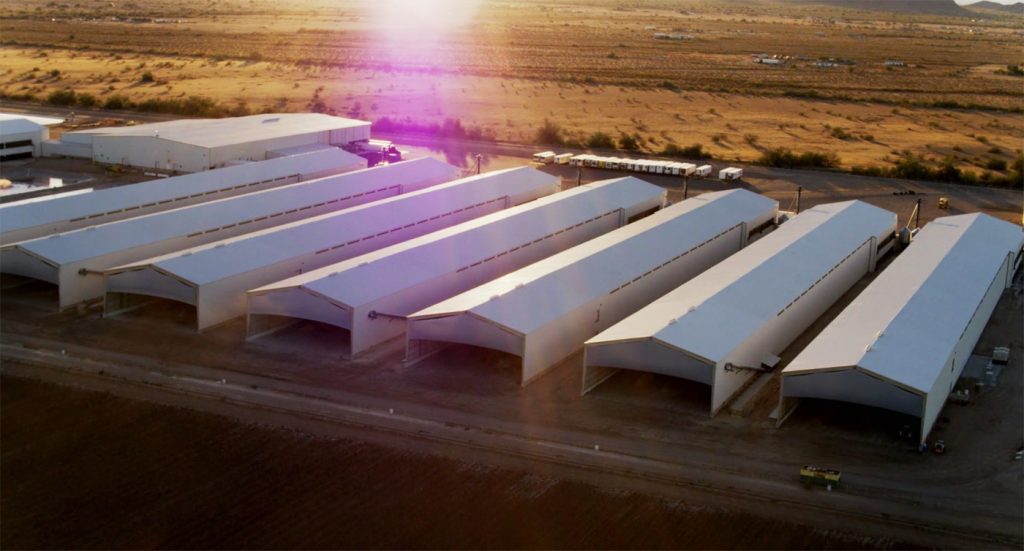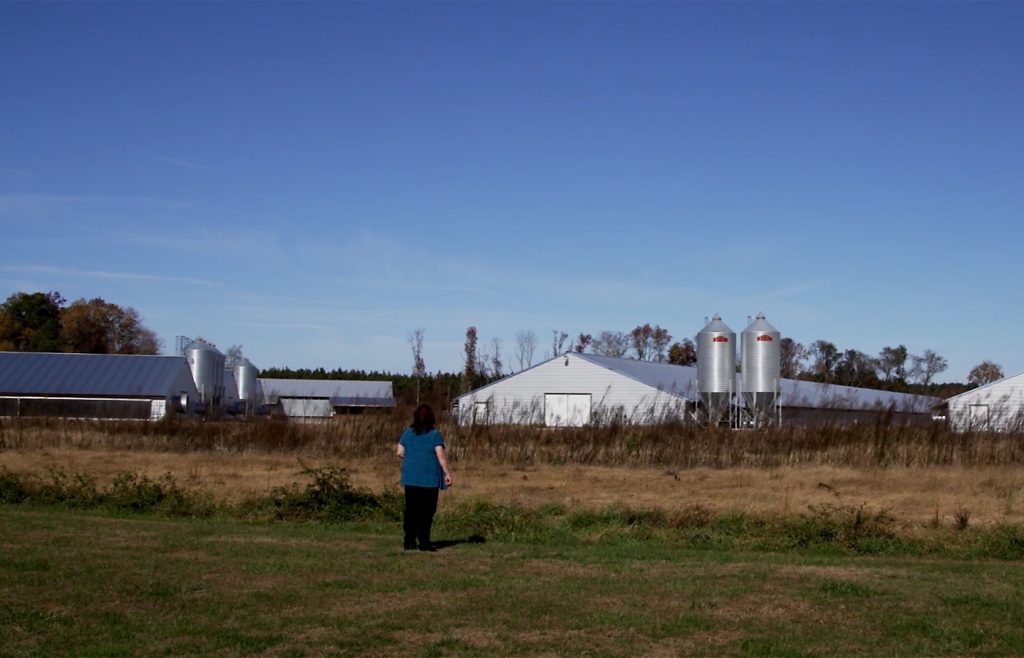
Iowa currently has over 22 million hogs in approximately 13,000 CAFOs (concentrated animal feeding operations), also known as factory farms. Each one of those industrial operations was built in neighborhoods of rural residents with few protections for neighbors and little ability for them to have a meaningful say in their location.
Right to Harm, a new documentary that reveals the public health and social impacts of factory farms in Iowa and four other states, will be screened on Thursday, June 20, at 7:15 p.m. at the Fairfield Arts & Convention Center, 200 N. Main Street, Fairfield. exposes the devastating ramifications that many families in Iowa and across the United States may experience from these inadequately regulated livestock factories.
The award-winning husband-and-wife team of Matt Wechsler and Annie Speicher (Sustainable) highlight Iowa’s ongoing battle against infringing CAFOs, told through the eyes of neighbors and advocates striving for social justice. It includes scenes from public events in Fairfield, conversations with agricultural economist Dr. John Ikerd, and follows the work of JFAN President and Executive Director Diane Rosenberg, who is also an Iowa Consultant with Socially Responsible Agricultural Project.
A panel discussion with Matt Wechsler follows the film.

“Right to Harm is a movie that addresses the ‘human welfare’ side of factory farms,” says Rosenberg. “You won’t see instances of animal abuse, addressed in other films and videos. Instead, you’ll hear compelling stories by individuals and families whose lives were negatively altered after CAFOs were built. These stories are just a representative sampling of what far too many people experience in Iowa and across the country. It’s why we need a factory farm moratorium in Iowa.”
By addressing the “human welfare” impacts of industrial animal agriculture, Wechsler and Speicher shine a light on the social injustice element that is largely unknown to a broad swath of U.S. consumers.
The film, backed by noted journalist and Executive Producer Mark Bittman, among others, makes a case that state agencies are failing to regulate industrial animal agriculture and chronicles actions taken by disenfranchised citizens to demand justice from their legislators.
The Iowa segment examines the plight of Gary Netser, who was confronted with two 1200-head CAFOs built across from his family’s 145-year-old farm in North English shortly after he retired there. It also addresses the efforts of Iowans coming together to protect their communities against an ever-expanding livestock industry and their efforts to advocate for stronger state regulations.
Wechsler, who spent three years working on Right to Harm, says he was affected by the situations of those he portrayed.
“Once you learn what it’s like for people who live near these facilities and then experience it firsthand, you can’t go back. I can’t bring myself to support a system that is inherently inequitable, and I wanted to share that feeling with others.”
The screening of Right to Harm is sponsored by Jefferson County Farmers & Neighbors, Inc. Admission is free; a donation of $5 is welcome to support JFAN’s mission.
